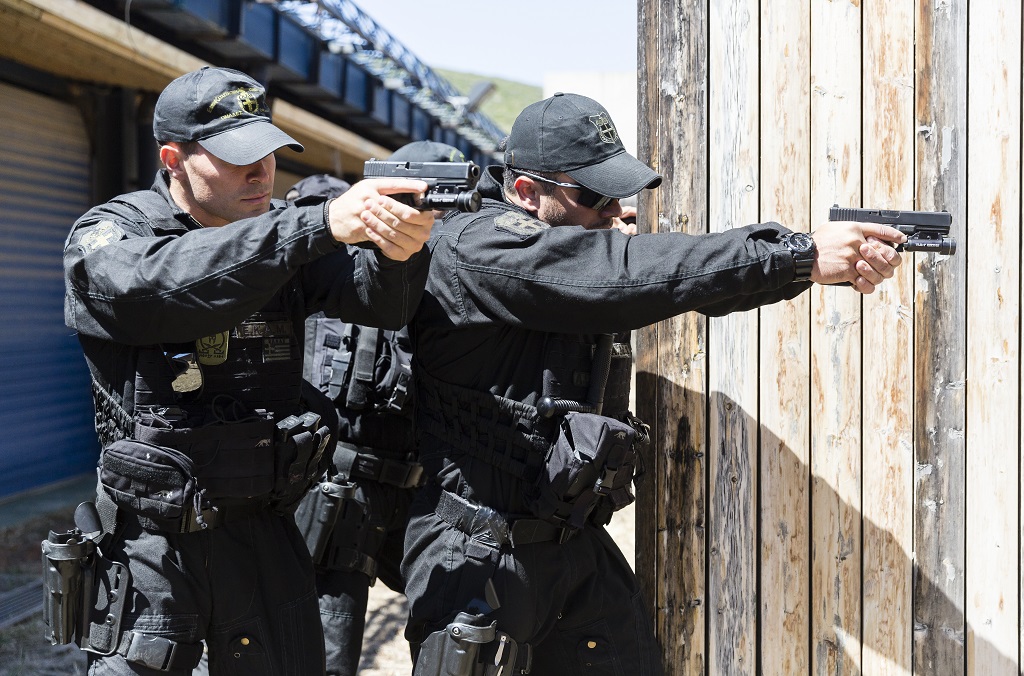
Greek Police, known as Ελληνική Αστυνομία.
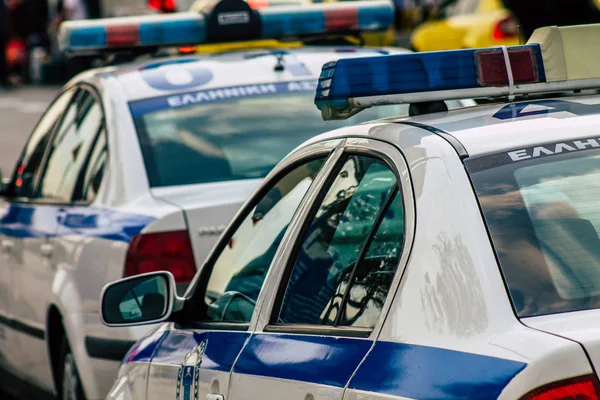
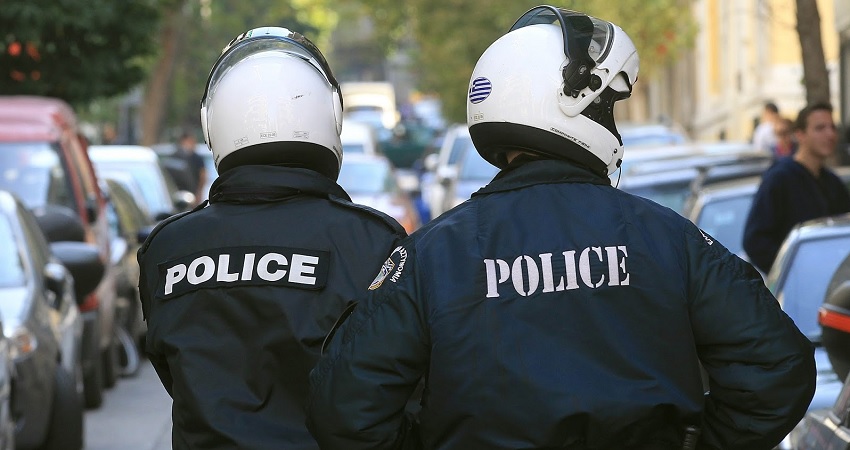
What does the Greek police do
-------->
The police in Greece, known as the Hellenic Police, are responsible for ensuring public safety, enforcing the law and preventing and combating crime throughout the country.

Main areas of activity of the Greek Police:
Public safety:
Police provide protection to citizens, tourists and other residents by patrolling the streets, responding to emergencies, maintaining public order, and preventing and solving criminal incidents.
Law Enforcement:
The Police enforces Greek law by investigating crimes, arresting suspects, conducting criminal investigations and cooperating with courts and law enforcement authorities.
Fight against crime:
The Hellenic National Police fights various types of crime, including street crime, organized crime, economic crime, drug crime, terrorism and smuggling of people and goods.
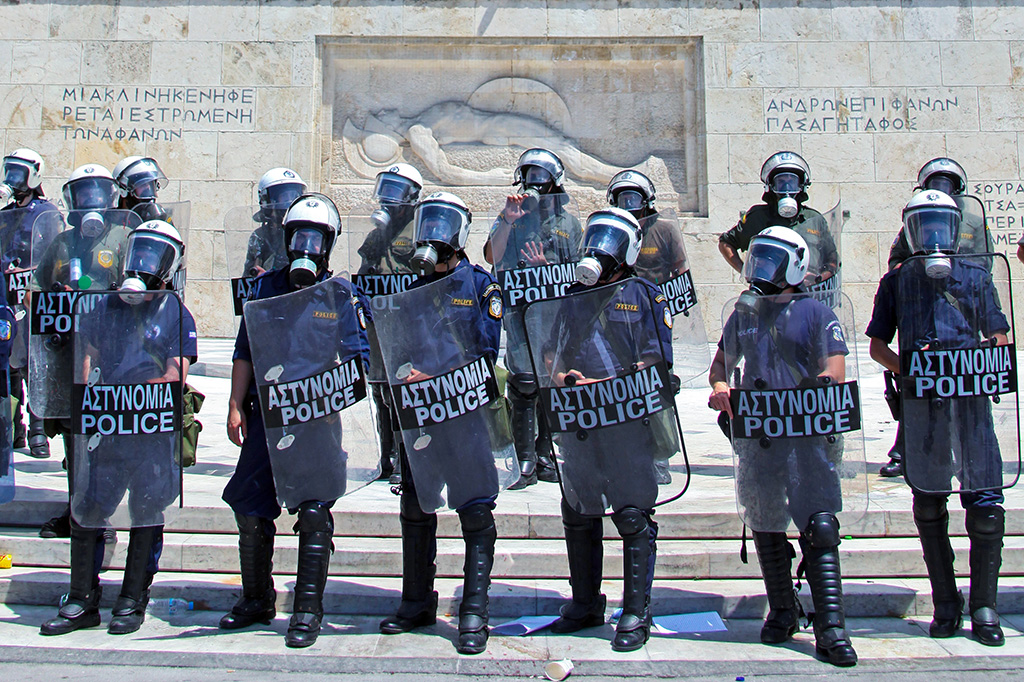
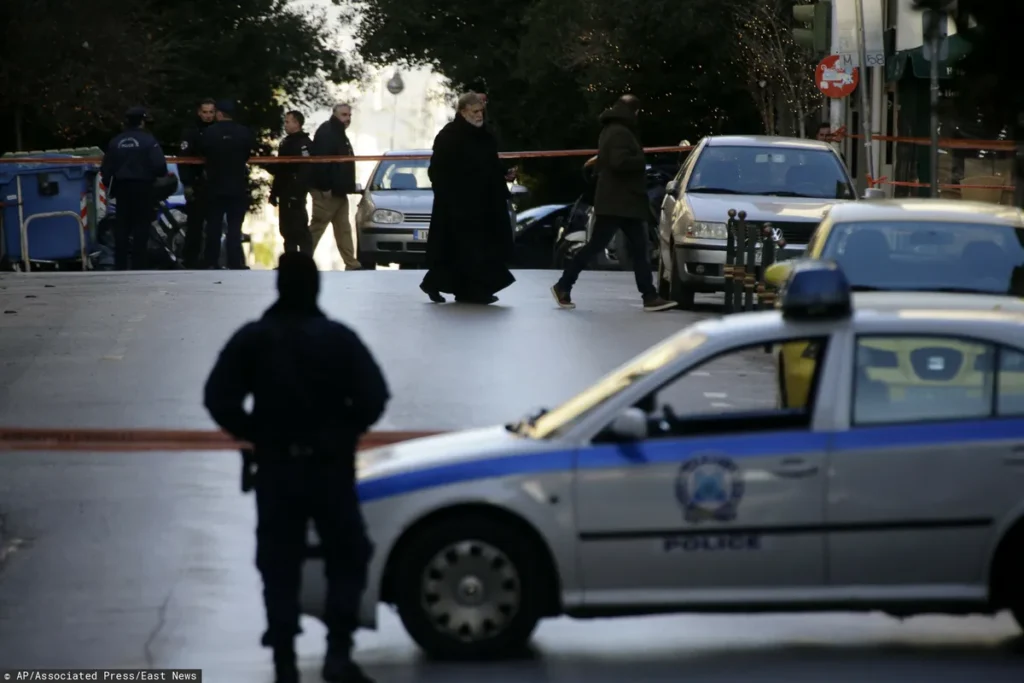
Border control:
Police control Greece’s borders, preventing illegal immigration, people smuggling, drug smuggling and other forms of cross-border crime.
Road safety:
The Hellenic Police supervises road safety by enforcing road rules, controlling speed, detecting drunk drivers and conducting educational campaigns to reduce the number of road accidents.
Protection of public facilities:
Police protect important public facilities such as government buildings, embassies, airports and mass events, ensuring safety against terrorism and other threats.
These tasks are carried out by various police units, including police stations, special units, anti-terrorist units, investigation units and patrol and intervention units.

Greek uniforms:
Police uniforms in Greece are designed to ensure functionality, comfort and identification of officers.
Uniform :
The main component of the uniform is the blue uniform, which may be made of appropriate materials for comfort and durability.
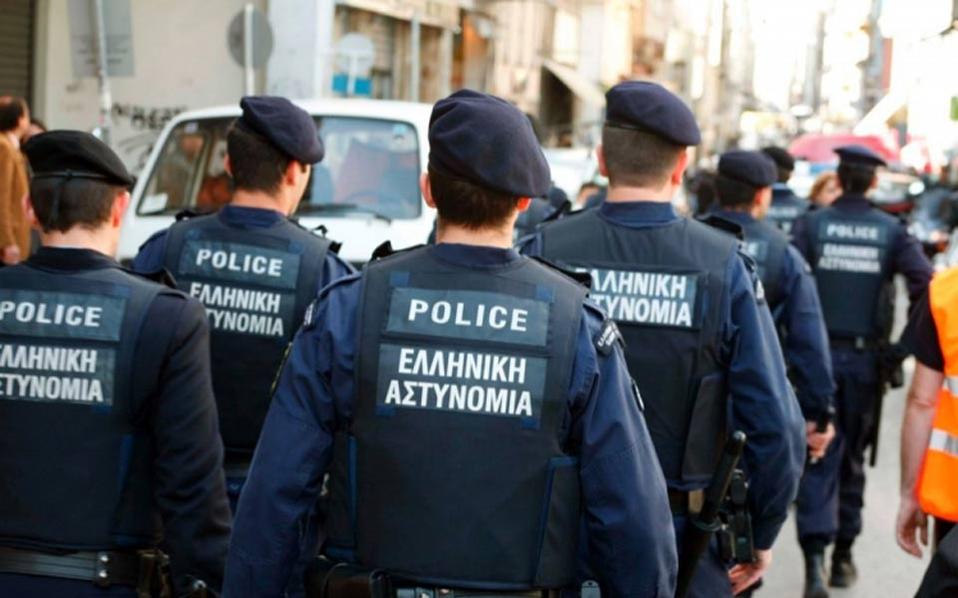
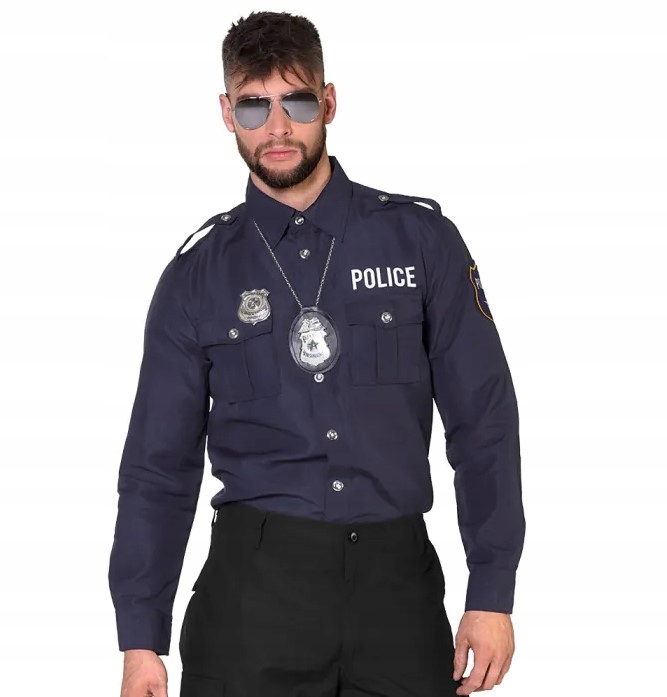
Shirt:
A white shirt is usually worn under the uniform and is part of the formal work attire.
Tie:
A tie is often added to the uniform, especially for ceremonial occasions or formal situations.
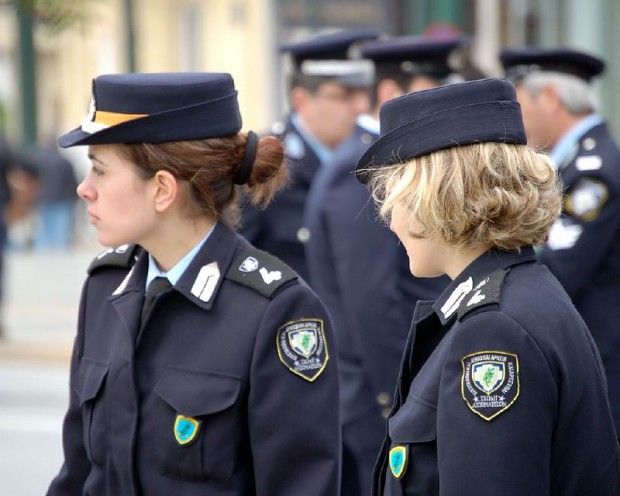
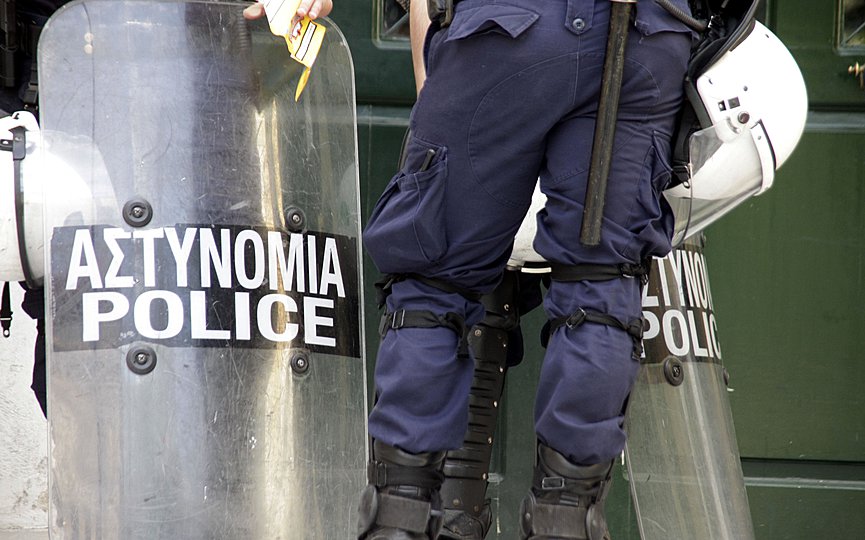
Pants:
Police officers usually wear dark pants to match their uniform.Pants: Police officers usually wear dark pants to match their uniform.
Service belt:
A wide service belt is often visible on the hips of officers, which can be both decorative and practical.
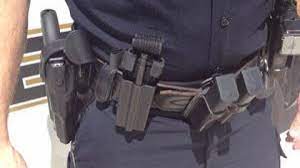

Insignia and badges:
The uniform may contain various types of badges, service insignia and other markings that identify the officer’s function and rank.
Cap or headgear:
Police officers wear special hats or other headgear consistent with official protocol.


Shoes:
Comfortable but durable shoes that provide adequate protection and enable movement on a variety of terrain.
Service equipment:
Officers may carry various types of service accessories on their belt or special service belt, such as radios, keys, flashlights, and in some cases also firearms.
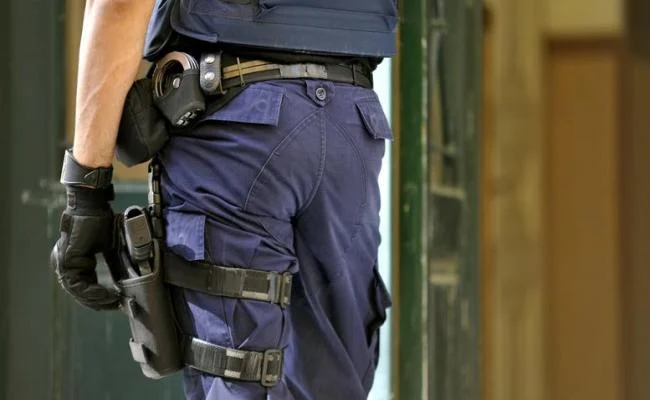

Police units that deal with various aspects of the provision of police services.
Hellenic Police (Elliniki Astinomia):
It is the main federal police agency in Greece, responsible for the general provision of police services in the country. Hellenic Police deals with a wide range of tasks, including preventing crime, prosecuting criminals, maintaining public order, conducting road checks, etc.
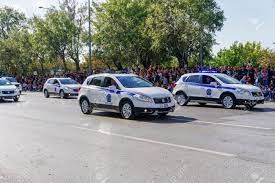
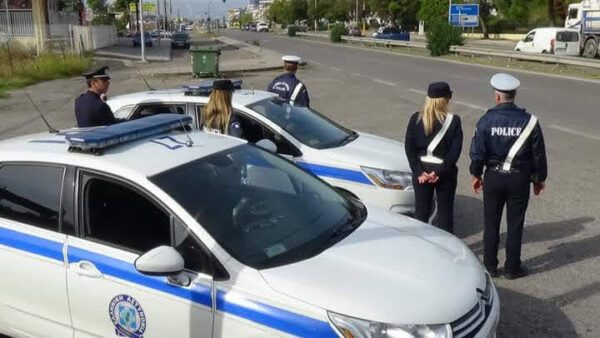
Traffic Police (Trafiko Astinomia):
This is a special unit of the Hellenic Police that is responsible for enforcing traffic regulations, controlling traffic, preventing road accidents and tracking traffic crimes.
Tourist Police (Astynomia Tourismou):
This police unit is responsible for providing safety and assistance to tourists visiting Greece. Tourist Police helps tourists in case of theft, lost documents, car breakdown, accident, etc.
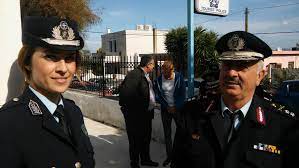
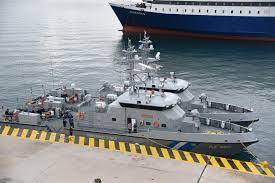
Hellenic Coast Guard (Elliniki Aktonomia):
This is the police agency responsible for patrolling Greek territorial waters, enforcing maritime regulations, preventing illegal immigration, search and rescue at sea, and combating illegal activities at sea, such as drug smuggling and maritime theft.
Port Police (Limin Astinomia):
Unit responsible for port and quay security, maritime enforcement anaffic control in port areas.
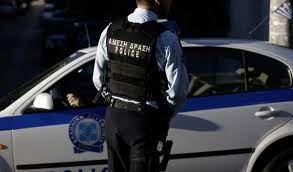
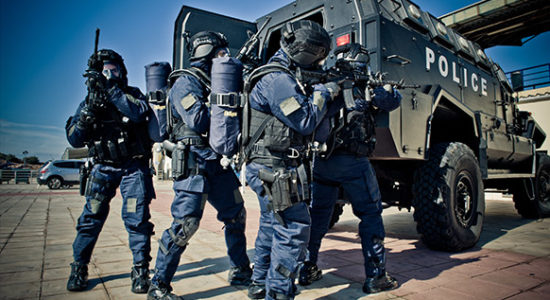
Special Anti-Terrorist Unit (EKAM):
This is an elite special police unit tasked with combating terrorism and conducting anti-terrorist operations in Greece.
Financial and Economic Crime Unit (SDOE):
This is a police unit that deals with combating financial and economic crimes, including corruption, money laundering, tax fraud, etc.
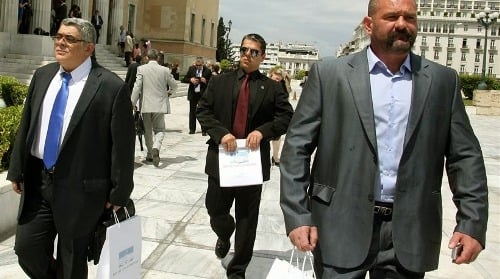
These police units cooperate with each other and other law enforcement agencies to ensure public safety and law enforcement in Greece.

Procedure during critical situations:
In crisis situations, the Greek Police operates in accordance with specific procedures and protocols to ensure public safety, minimize damage and ensure an effective response to the situation.
What exactly do the police do at such moments?
Situation assessment:
Police conduct a rapid situation assessment to understand the scope, type and severity of the threat. Further actions are taken based on this information.
Evacuation:
In the event of a threat to people’s life or health, the police may organize the evacuation of people from the endangered area to safe places.
Crowd control and management:
In the event of mass gatherings, protests or other situations where tensions may escalate, police may act to control crowds, prevent acts of violence and maintain public order.
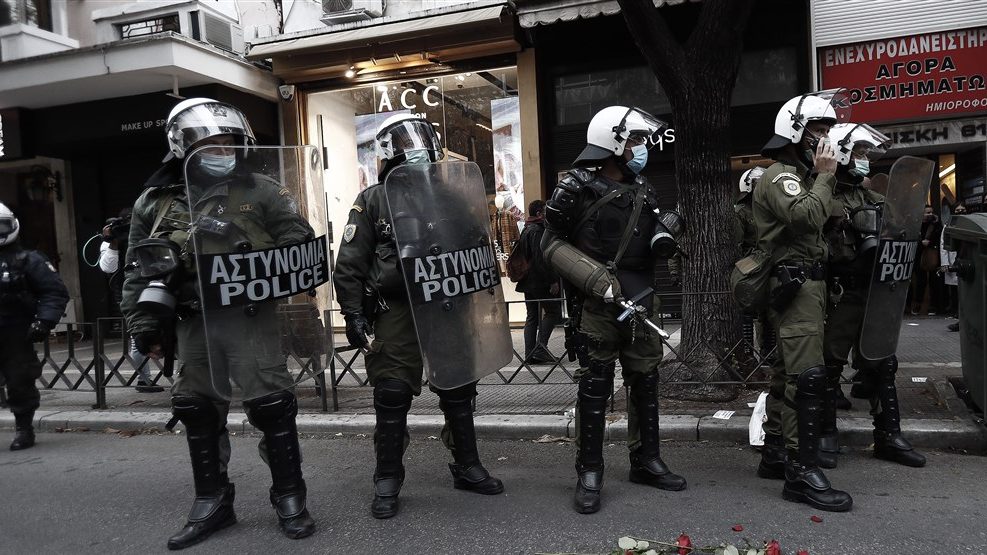

Intervention and Law Enforcement:
If necessary, the police may intervene to arrest perpetrators or prevent criminal acts. Various methods of intervention may be used, including negotiation, crowd control, and in extreme cases even physical force or the use of non-lethal weapons.
Coordination with other emergency services:
In crisis situations, the police cooperate with other emergency services such as fire brigade, medical services, emergency services to ensure a coordinated response to the situation.
Informing the public:
Police can provide up-to-date information and recommendations to the public to ensure safety and minimize panic.
Tracking and Investigation:
Once a crisis has ended, the police can conduct an investigation to identify the causes and those responsible for the events and implement preventive measures for the future.
